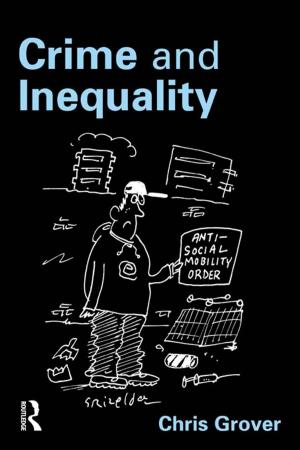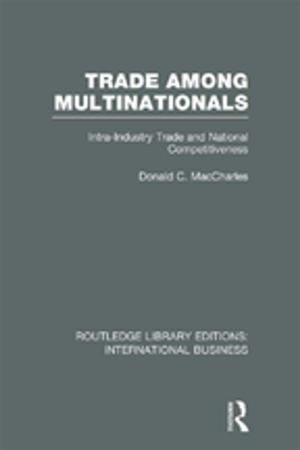The Case for Congress
Separation of Powers and the War on Terror
Nonfiction, Reference & Language, Law, Jurisprudence| Author: | Victor M. Hansen, Lawrence Friedman | ISBN: | 9781351893381 |
| Publisher: | Taylor and Francis | Publication: | December 5, 2016 |
| Imprint: | Routledge | Language: | English |
| Author: | Victor M. Hansen, Lawrence Friedman |
| ISBN: | 9781351893381 |
| Publisher: | Taylor and Francis |
| Publication: | December 5, 2016 |
| Imprint: | Routledge |
| Language: | English |
The Case for Congress: Separation of Powers and the War on Terror examines the constitutional relationship between Congress and the President in the post-September 11 world, arguing that Congress should exercise its legitimate authority in guiding United States policy. While many commentators have focused on the extent of the President's national security and foreign affairs authority, both domestically and abroad, this title focuses on the constitutional authority of Congress to serve as a check on executive power. As a national consensus has developed around the notion that the Bush administration made grave errors in its policy decisions, a reminder of the leading role that Congress can play in those decisions is particularly appropriate. Unlike scholarly work devoted either to detailing or criticizing the Bush administration's policy decisions, this accessible and balanced book focuses on the policies themselves, and on the way in which Congress can influence those policies for the better. The authors further offer specific and useful recommendations for legislative measures that may correct existing policy deficiencies and promote sounder decision-making in the area of national security and foreign affairs.
The Case for Congress: Separation of Powers and the War on Terror examines the constitutional relationship between Congress and the President in the post-September 11 world, arguing that Congress should exercise its legitimate authority in guiding United States policy. While many commentators have focused on the extent of the President's national security and foreign affairs authority, both domestically and abroad, this title focuses on the constitutional authority of Congress to serve as a check on executive power. As a national consensus has developed around the notion that the Bush administration made grave errors in its policy decisions, a reminder of the leading role that Congress can play in those decisions is particularly appropriate. Unlike scholarly work devoted either to detailing or criticizing the Bush administration's policy decisions, this accessible and balanced book focuses on the policies themselves, and on the way in which Congress can influence those policies for the better. The authors further offer specific and useful recommendations for legislative measures that may correct existing policy deficiencies and promote sounder decision-making in the area of national security and foreign affairs.















